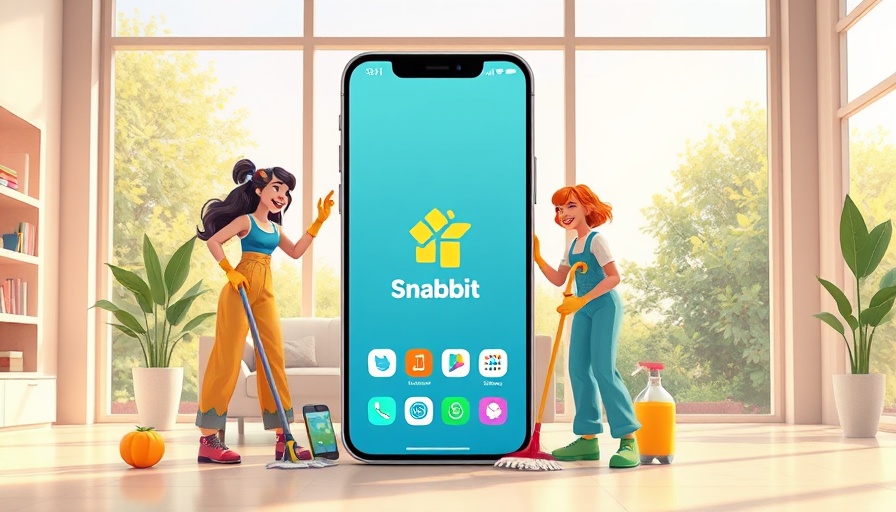
Snabbit: A Game-Changer in Indian Home Services
In India, the home services sector has traditionally operated on informal, offline systems often leading to unreliable experiences for consumers and job insecurity for workers. Yet, innovative startups like Snabbit are revolutionizing this space, incorporating technology to ensure efficiency and reliability. Its recent Series B funding round of $19 million, led by Lightspeed, showcases investor confidence in their business model, which aims to eliminate traditional service delays while ensuring fair wages for workers.
The Technology-Driven Transformation of Home Services
Founded just over a year ago, Snabbit stands out by enabling customers to book high-frequency services – such as cleaning, laundry, and dishwashing – all through a user-friendly app. With the promise of delivery in just 10 minutes, Snabbit allows for unparalleled convenience. Founder Ayush Agarwal’s personal frustrations in securing reliable home help inspired the startup's creation. He vividly recalls a challenging event when his mother had to fly in just to assist him in finding household help, reflecting how even simple services can often become a Herculean task in the traditional marketplace.
Racing Ahead with a Full-Stack Strategy
Snabbit employs a “full-stack approach” to manage service deliverability. By sourcing, screening, training, and onboarding workers, the startup creates a structured environment that thrives on efficiency. This model ensures that once employed, the workers—termed 'experts'—are positioned close to service areas, enabling Snabbit to fulfill its 10-minute service promise. Such strategic positioning not only guarantees faster service but also stimulates local job markets.
Rich Competition and Industry Trends
Despite its promising rise, Snabbit faces competition from established players, notably Urban Company, which has also ventured into rapid service delivery. Urban Company's recent branding misstep with 'Insta Maids,' which led to backlash from gig worker unions, underscores the challenges of navigating market perceptions and ensuring ethical branding in this space. As companies like Snabbit and Urban Company pivot towards technology-enhanced customer service solutions, this will undoubtedly drive a significant shift towards more consumer-friendly practices in the Indian home services market.
Understanding the Market Potential and Future Trends
As perceived by industry experts, the home services market in India is set to expand significantly, fueled by technology adoption and the increasing demand for convenient services. Consumers now expect rapid service delivery akin to that of ridesharing and food delivery innovations. Startups can capitalize on this momentum by prioritizing quality service delivery while maintaining fair treatment of gig workers. Beyond ensuring convenience for consumers, fostering a sustainable workforce will be paramount to establishing brand loyalty and trust.
A Closing Note on Consumer Expectations
For business professionals tuning into this evolving landscape, the rise of Snabbit embodies an exciting trend worth monitoring. It highlights the crucial intersection between technology and daily life services—two areas of immense consumer interest. The future of home services doesn't just rest on speed; it hinges on trust, transparency, and the overall quality of experience provided to both consumers and service workers alike.
The home services market is bustling with opportunities for entrepreneurs ready to innovate. From leveraging technology to refine operations to understanding consumer sentiment, the path forward is rich with potential. The growth of startups like Snabbit could signal a new chapter in India’s consumer economy.
 Add Row
Add Row  Add
Add 




 Add Row
Add Row  Add
Add 

Write A Comment